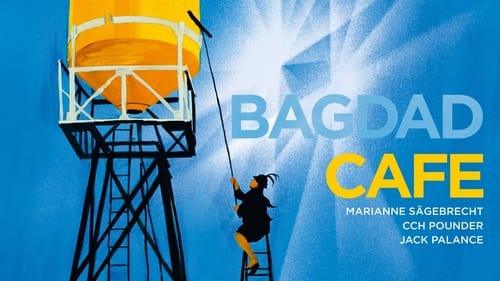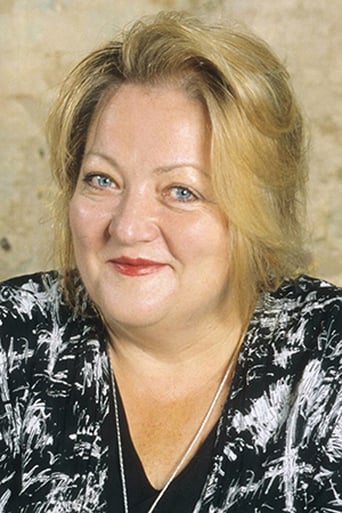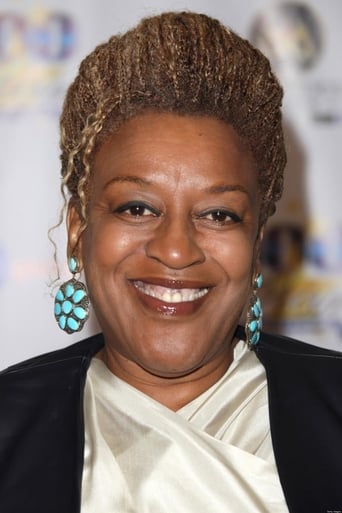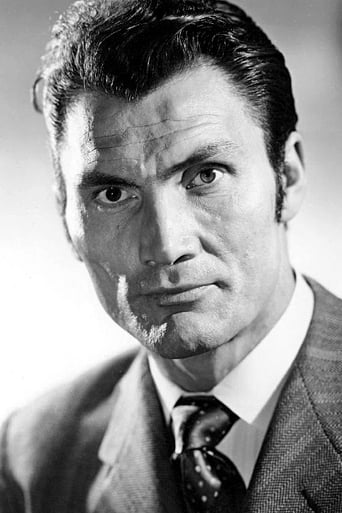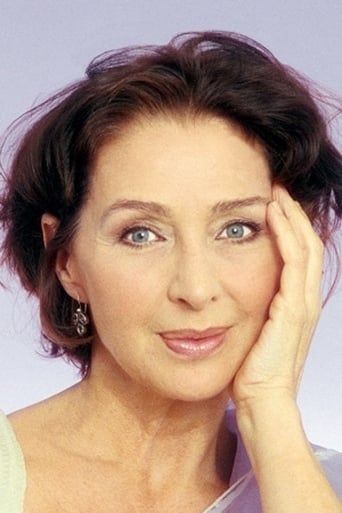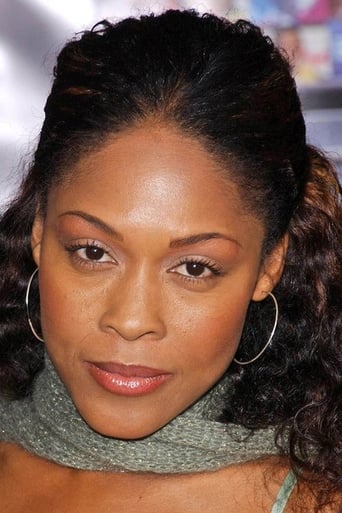ElMaruecan82
Percy Adlon's cult-hit "Bagdad Café" sets the tone the strangest way. Marianne Sägebrecht Jasmin, a Bavarian tourist, stuck in the middle of the Californian desert with an abrasive husband, she mutters names like Disneyland and Las Vegas but what we get from their body language is that a/ they're lost, b/ they're not exactly in their element and c/ she's at the verge of breaking down.And bingo, Jasmin finally snaps, she takes her luggage and walks away from the car. I like it when a movie features exactly the amount of exposition needed, who needs backstory when you see an overweight frau in typical German clothes walking eagerly across the Mojave Desert, and even refusing a ride, you know there's more than traveling.Meanwhile, in a remote and shabby transport café, with an adjacent hotel, an infuriated Brenda, played by CCH Pounder, keeps raging at her husband for having forgotten the percolator while being in town. No need to backstory again, the husband is fed up with his woman's tantrums and leaves her alone. She's the boss of the Bagdad Café now, and it's a matter of time before the coming of a strange visitor.And as different as they were, Jasmin and Brenda were at crucial times of their lives, seemingly dead-end that could be turned into crossroads. To use a hackneyed term, some people are just meant to meet each other. Speaking of that, when I was a kid, "Bagdad Café" has always been an enigma, I hadn't seen the film, but I knew about its most defining image of the two women embracing with that 'Calling You' song in the background. And this image was stuck in my mind for years and years before I finally saw it. Cinema is all about imagery and music and I guess the film offers both without trying too much and it's genuinely good. Now, there's no particular reason for this gem to stand higher than the others, but no reason for the opposite either. Maybe it's because the film has the most unlikely setting, protagonists, and 'story' as far as the story-line goes, that at the end, it's impossible to compare it to any other movie, it's something that could have belonged to the 'New Hollywood' period, one of these 'slice of life' movies, like "The Last Picture Show" without the depressing 'end-of-an- era' theme. Only what could have been a rather bleak and depressing material is handled with good heart and sweetness, Jasmin incarnates a certain openness to new cultures or environments, typical of European mindset, and she manages to change the people around her, meeting more hostility than defensive resistance from the hot-tempered and bossy Brenda. But there's never a moment when you feel that the dynamics are forced, Jasmin marks her territory in the smoothest way, as if our sympathy wasn't taken for granted. But who can resist for that generous woman and that actress who, in any other typical Hollywood (or mainstream commercial European) film, would only be given foil roles.As Jasmin, she wins our hearts as the poor German stranger, estranged from everyone who discovers a shabby, sleazy, untidy place, but still better than the one she left. She knows she must put that in order, but she starts well, by putting her own house (i.e. room) in order. Her atypical behavior catches the attention of the motel- occupants, Brenda's son, a gifted pianist and her daughter who's delighted to see the monotony of the motel being broken for once, truck drivers, a tattoo-artist and a set- painter played by Jack Palance. His presence, his old-hippie fashion the fascinated look he constantly directs toward Jasmin, is one of these details that make "Bagdad Café" such a special movie.Today, there would have been some sexual undertones, the film would have been a comedy, a robbery would happen, or a subplot involving the daughter being a drug- addict or raped, anything for cheap thrills, because no director would believe it possible to maintain such plot absence for a while. And the most dramatic thing is that he would be right, because our ambitions in film-making became so high that we don't realize, they're reversely low. That the film was a box-office hit in Europe and a cult- classic in France shows that the 80's also belong to a time where miracles were possible, where it was still possible to reach the hearts of people with simple stories. And maybe 'simple' stories are the most difficult to make, because there's nothing to hook our mind on, we just have to witness human relationships going on, and trying to find how some scenes speak to us. And maybe it's the film's very particular setting, in the middle of nowhere, that allows it to speak universal statements to everyone. This is a true 'alien' in both meaning of the world, as a foreigner and as a person alienated from her own world, but at the end, she's the one who proves that every occupant of the hotel was alienated by boredom, routine and the stress of their bossy owner, something that was progressively destroying their lives, until the place is resurrected and Jasmin, herself, both singer and magician becomes a sort of money-bringing attraction.And I guess, this is the meaning of that defining image, of that magnificent moment where the two women embrace, you know what they say about images speaking thousand words. This image, one of the most iconic from the 80's, show two women who had more things in common than they thought, two women who met at the most difficult time of their life, show a friendship that finally blossomed over distrust and misunderstanding, and two persons that could finally take a new more optimistic path for their life. It's a mutual "Thank You" behind these friendly smiles. Thank you for putting my house in order, literally for one, symbolically for the other.
moonspinner55
Surreal, mercurial drama from West Germany has troubled-yet-complacent Marianne Sägebrecht leaving a bad marriage and coming across an eccentric café in the California desert. Oddball picture gets off on the wrong foot, with confusing hysteria and shouting from the residents, but those who stick with it will be rewarded by what follows. The sneaky film captures viewers unawares with its sideways message of love and friendship, eventually becoming a rather touching, lovely fantasy about human bonds. The unusual cast, including CCH Pounder, Christine Kaufman and (surprise!) Jack Palance, does strong work, though it is Sägebrecht's beautiful performance which holds the movie together. Followed by a far-inferior television sitcom. *** from ****

